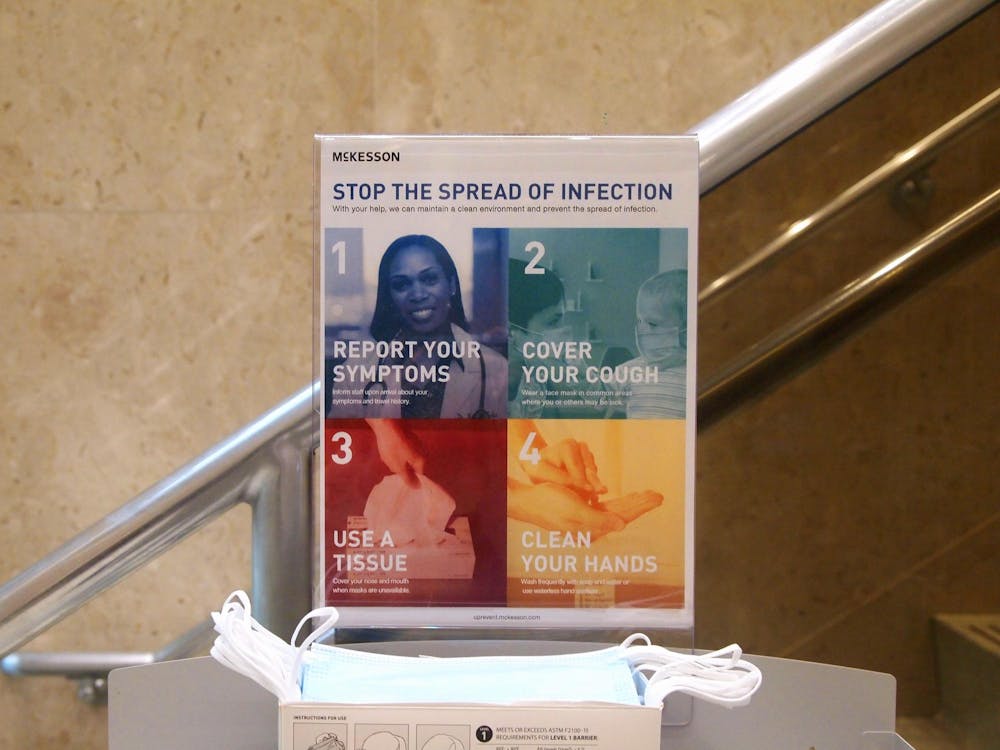As Bloomington heads into peak season for respiratory viruses, first year students at IU are facing the perennial threat of catching the “freshman flu.”
This phenomenon rolls through campuses across the country every year, attracting attention from university newspapers and concerned parents. With cold season beginning in late August and often spreading through the first-year class, the “freshman flu” moniker applies to a range of illnesses with similar symptoms, including flu, strep, COVID-19, mono and upper respiratory infections.
According to the Student Health Center, these widespread problems spread quickly and produce similar effects: waves of sniffling, fatigue, a sore throat and coughing. The symptoms often lead to freshmen students curled up in dorms while their roommates anxiously await their own turn battling the germ.
That was the experience of Joel Bell, an IU freshman studying finance and public policy analysis. Two weeks ago Bell came down with a sore throat, a cough and congestion. He says he wasn’t surprised.
“It was a matter of when I got (sick), not if,” Bell said.
Bell attributes his experience with viral transmission to dormitory living.
“Especially with the communal areas, anything could have given me the illness,” Bell said. “I was sick, and then shortly after, my roommate got sick…. I’m sure I had something to do with that.”
Dorms are just one reason that freshmen feel sick so frequently.
Marcey Tidwell is a registered nurse who has worked at the IU Student Health Center for 22 years. She said illness transmission among the freshman classes can be linked to the physical toll of a new environment.
“[Freshmen experience] massive amounts of exposures to new and exciting germs from all over the country, all over the world,” Tidwell said. “When you’re a freshman, you’re gonna step into every germ.”
The increased transmission risk can also be tied to social settings. Another nickname for “freshman flu” is “frat flu,” a term which attributes transmission to crowded parties. But many group events can present opportunities for infection.
“I think trying to live a social life in college, whatever that may be, whether it's a party or just hanging out, may cause people to spread their sicknesses more easily,” Alex Riley, an IU freshman who recently recovered from a bout of illness, said. “They're interacting with more people in possibly closer spaces.”
Beyond exposure risk, Tidwell said freshmen may also be more vulnerable to health problems. The transition into college impacts health factors including diet, sleep patterns, hydration and stress levels. These changes can lower infection resistance.
“Everybody's immune system is stomped down,” Tidwell said.
Frequent exposure and low immunity combine to create what Tidwell called a “perfect storm.” As a result, infected students may experience academic setbacks.
Riley recalled difficulty completing assignments during the week he was sick.
“I was struggling to do, for example, my reading (from) my textbook,” Riley said. “I had a lot of brain fog…and could not focus on what I was doing for long periods of time.”
Homework and class attendance policies vary between instructors, and some courses have strict rules on class absence that may pressure students to submit homework and attend class while sick. That’s one reason the IU Health Center stopped supplying doctor’s notes; absence policies that require doctor’s notes can complicate the treatment process, and by requiring students to seek and pay for treatment, instructors might unfairly tie academics to students’ financial circumstances.
“We (the Student Health Center) want to treat illnesses,” Tidwell said. “We don’t want to treat classes and tests.”
To prevent or reduce sickness, Tidwell recommends students get plenty of sleep, hydrate properly, buy thermometers to self-evaluate symptoms and avoid sharing food or utensils. She also encourages students to get their flu and COVID-19 shots. These are available to students through Campus Health, and flu shots are free for students without insurance.




